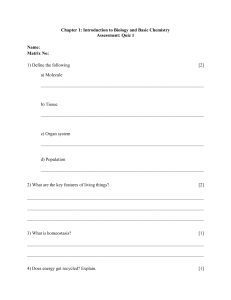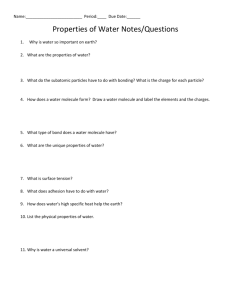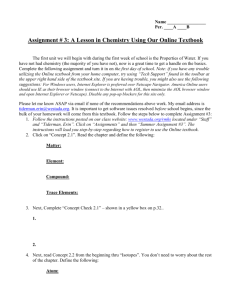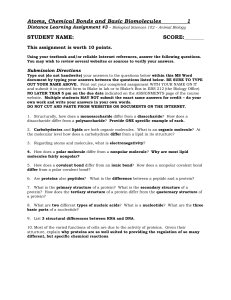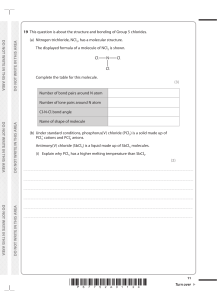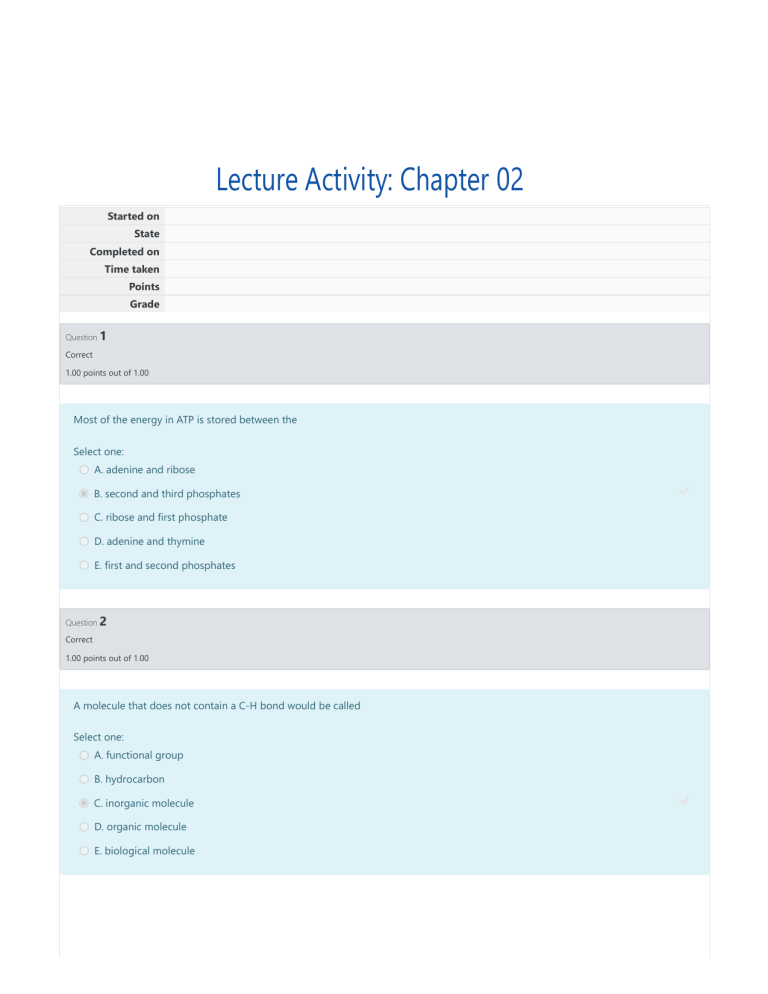
Lecture Activity: Chapter 02 Started on State Completed on Time taken Points Grade Question 1 Correct 1.00 points out of 1.00 Most of the energy in ATP is stored between the Select one: A. adenine and ribose B. second and third phosphates C. ribose and first phosphate D. adenine and thymine E. first and second phosphates Question 2 Correct 1.00 points out of 1.00 A molecule that does not contain a C-H bond would be called Select one: A. functional group B. hydrocarbon C. inorganic molecule D. organic molecule E. biological molecule Question 3 Correct 1.00 points out of 1.00 If an atom has 4 total electrons in all shells, how many electrons would it need to lose in order to fill its valence shell? Select one: A. 1 B. 5 C. 2 D. 3 E. 4 Question 4 Correct 1.00 points out of 1.00 Which molecule is used as an energy storage molecule and building block of complex carbohydrates? Select one: A. amino acid B. monosaccharide C. nucleotide D. polysaccharide E. polypeptide Question 5 Correct 1.00 points out of 1.00 A substance that cannot be broken down to any other substance by ordinary chemical means best defines Select one: A. isotope B. matter C. molecule D. element E. energy Question 6 Correct 1.00 points out of 1.00 Changing the environment too much causes proteins to lose their shape in a process called Select one: A. prion B. reduction C. genetic disease D. denaturation E. oxidation Question 7 Correct 1.00 points out of 1.00 The type of chemical bond that results from an unequal sharing of electrons is Select one: A. polar covalent B. ionic C. nonpolar covalent D. hydrophobic interaction Question 8 Correct 1.00 points out of 1.00 The type of chemical bond that forms between oppositely charged atoms or molecules is Select one: A. polar covalent B. hydrophobic interaction C. nonpolar covalent D. ionic Question 9 Correct 1.00 points out of 1.00 Which type of protein functions to receive a signal for the cell? Select one: A. receptor B. enzyme C. structural D. contractile E. regulation Question 10 Correct 1.00 points out of 1.00 Which subatomic particle does NOT contribute significant mass to the atom? Select one: A. neutrons B. electrons C. ion D. protons E. element
